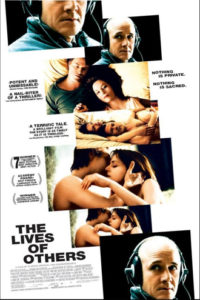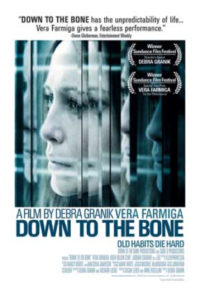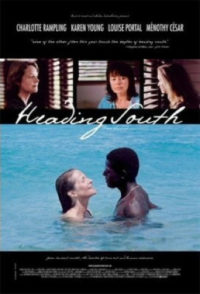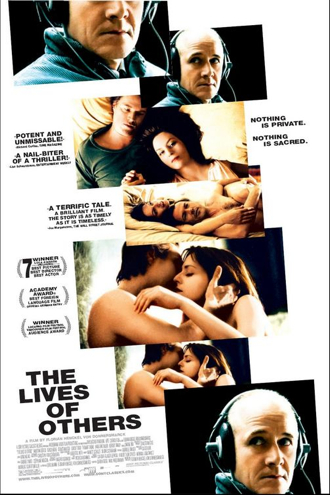 In the amusingly mis-named German Democratic Republic, during the last years before the Berlin Wall fell and Germany was re-unified, the people were monitored for idealogical and political purity by the Stasi, or Secret Police. Astonishingly, there were 90,000 officers in the Stasi and hundreds of thousands more were paid informants, keeping themselves out of jail or settling old scores. A deeply paranoid political élite learnt its philosophies and its practice from the Nazis they had overthrown and an ill-timed joke could see the end of a career or the start of a spell in solitary confinement.
In the amusingly mis-named German Democratic Republic, during the last years before the Berlin Wall fell and Germany was re-unified, the people were monitored for idealogical and political purity by the Stasi, or Secret Police. Astonishingly, there were 90,000 officers in the Stasi and hundreds of thousands more were paid informants, keeping themselves out of jail or settling old scores. A deeply paranoid political élite learnt its philosophies and its practice from the Nazis they had overthrown and an ill-timed joke could see the end of a career or the start of a spell in solitary confinement.
The awfulness and absurdity of the situation is brilliantly painted in Florian Henckel von Donnersmarck’s thriller The Lives of Others, the best Foreign Film Oscar-winner in years. Set in the late 1980s, as even the most loyal of state servants and patriots are losing their faith, state-sanctioned playwright Dreyman, played by Sebastian Koch, is shaken by the suicide of his black-listed director, Jerska. He writes an article on suicide statistics in the GDR to be smuggled out to the West, not realising that his flat is being monitored 24/7 by the Stasi. Luckily, his main voyeur (Wiesler, a lovely performance by Ulrich Mühe) is having complex second thoughts of his own.
The Lives of Others drifts in to melodrama a little a times but when it keeps its thriller discipline, and its wry humour, it is one of the best films of the year.
 An astonishing performance from Vera Farmiga is the defining feature of Down to the Bone, a grainy and granular micro-budget story of a woman trying to kick drugs in a world that is almost terminally unforgiving. Farmiga plays Irene, a cocaine user since high school, who realises she has hit bottom when she tries to buy drugs with her son’s birthday cheque from Granny.
An astonishing performance from Vera Farmiga is the defining feature of Down to the Bone, a grainy and granular micro-budget story of a woman trying to kick drugs in a world that is almost terminally unforgiving. Farmiga plays Irene, a cocaine user since high school, who realises she has hit bottom when she tries to buy drugs with her son’s birthday cheque from Granny.
Thereafter it follows the traditional trajectory of addiction morality tales (mostly “down” with enough “up” at the end to stop you from slitting your own wrists outside in the candy bar) and it relies a little too much on a laboured serpent metaphor, but Farmiga is wonderful. There’s a scene in a group session at rehab where her moment of realisation is so powerful and so truthful, it might be my favourite screen moment of the year so far.
 Laurent Cantet’s Heading South is set in Haiti, basket-case of the Caribbean, in the late 70’s. Rich, lonely, women spend their vacations as sex tourists exploiting the poorest people in the Americas, completely self-absorbed, failing to recognise the tragic situation they are helping to sustain. The fearless Charlotte Rampling stars as Ellen, the Camp Mother from Boston who spends entire summers basking on the beach, being tended to by beautiful black men, all the while masking her own loneliness with contempt for others.
Laurent Cantet’s Heading South is set in Haiti, basket-case of the Caribbean, in the late 70’s. Rich, lonely, women spend their vacations as sex tourists exploiting the poorest people in the Americas, completely self-absorbed, failing to recognise the tragic situation they are helping to sustain. The fearless Charlotte Rampling stars as Ellen, the Camp Mother from Boston who spends entire summers basking on the beach, being tended to by beautiful black men, all the while masking her own loneliness with contempt for others.
It’s a thought-provoking film but not terribly satisfying – the passages in English are stilted and the pace is inconsistent. Ménothy Cesar as doomed young Legba is definitely one to watch, though.
 The preview DVD of Becoming Jane that I was lent stopped playing after 73 minutes so I can’t tell you whether Lefroy discovers Jane’s super-powers or not. This would make a perfect double-feature with that Beatrix Potter movie from earlier in the year, then I could scorn them both simultaneously.
The preview DVD of Becoming Jane that I was lent stopped playing after 73 minutes so I can’t tell you whether Lefroy discovers Jane’s super-powers or not. This would make a perfect double-feature with that Beatrix Potter movie from earlier in the year, then I could scorn them both simultaneously.
Printed in Wellington’s Capital Times on Wednesday 6 June, 2007.




